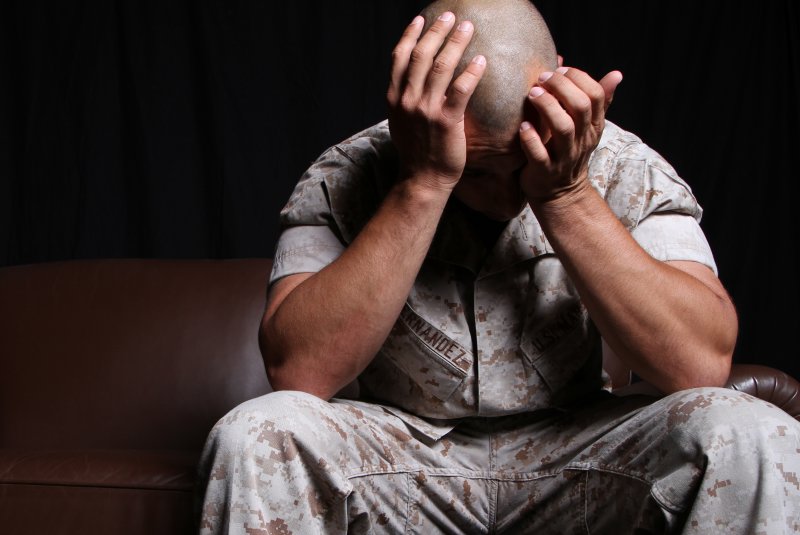
Aug. 25 (UPI) — Despite the stresses and social isolation caused by the COVID-19 pandemic, fewer U.S. military veterans contemplated or attempted suicide compared to years past, a study published Wednesday by JAMA Psychiatry found.
Just under 8% of nearly 3,100 veterans included in the analysis reported thoughts of suicide during the pandemic, down from about 11% pre-pandemic, the data showed.
Eight of the veterans included in the study, or 0.3% of the sample population, attempted suicide during the pandemic, the researchers said.
Veterans who indicated that they had low social support had a nearly three-fold higher risk for thoughts of suicide, while those who reported worsening social relationships during the pandemic were 47% more likely to consider suicide.
In addition, those who were diagnosed with COVID-19 were more than twice as likely to have suicidal thoughts, the data showed.
“I think our study findings highlight the complexity that there is in understanding how different populations may respond to the pandemic,” study co-author Brandon Nichter told UPI in an email.
“I think a lot of folks had the impression that the pandemic would have a uniformly negative impact on mental health, [but] the results of our investigation suggest that there may be significant variability,” said Nichter a clinical psychologist and visiting scholar at the University of California-San Diego.
Although research has indicated a rise in mental health problems during the COVID-19 pandemic, including depression and anxiety, suicide rates actually declined globally and in the United States in 2020, according to a Lancet Psychiatry study published in April.
For the California study, Nichter and his colleagues analyzed rates of suicidal thoughts and suicide attempts among 3,078 U.S. military veterans between November 2019 and December 2020.
The veterans included in the study were age 22 to 99, and 35% saw combat during their time in the military.
Despite the decline in rates of suicidal ideation among veterans in the study during the pandemic, nearly 3% of them reported experiencing thoughts of suicide for the first time during the public health crisis, the data showed.
“Military veterans have high rates of trauma exposures, including childhood adversities and combat, which may have helped ‘inoculate’ them to be better able to endure periods of prolonged stress,” study co-author Robert Pietrzak told UPI in an email.
“The observed decrease in suicidal ideation may also be linked to a ‘pulling together’ phenomenon that has been observed in natural disasters and periods of war,” said Pietrzak, a clinical psychologist and epidemiologist at Yale University in New Haven, Conn.